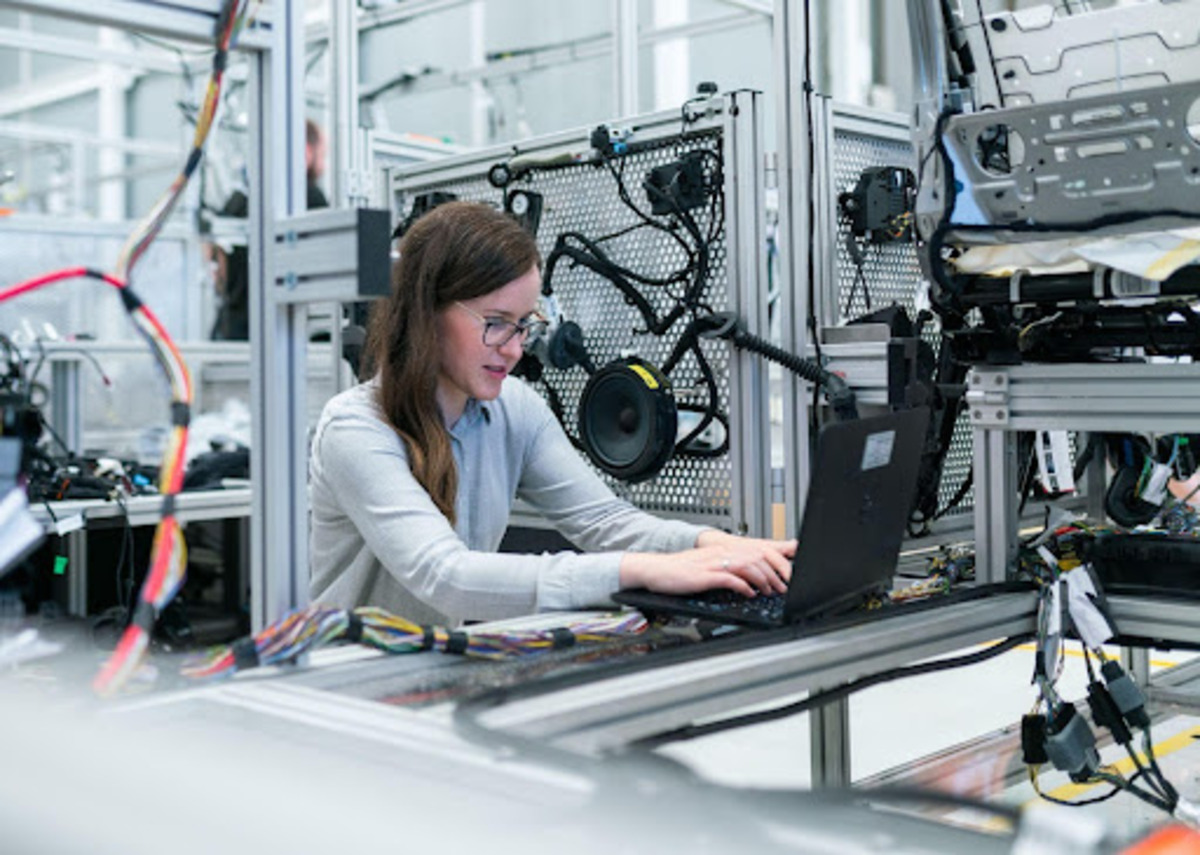Kinetica accelerates vector similarity search with NVIDIA RAPIDS RAFT
Kinetica, the real-time GPU-accelerated database for analytics and generative AI, unveiled at NVIDIA GTC its real-time vector similarity search engine that can ingest vector embeddings 5X faster than the previous market leader, based on the popular VectorDBBench benchmark. Under the hood Kinetica uses NVIDIA RAPIDS RAFT to harness the power of the GPU for vector similarity search. With Kinetica’s best-in-class combined data and query latency for vector embedding pipelines, large language models (LLM) can immediately augment their results with new information via embeddings as soon as they are generated, without delays at scale.
Goldman Sachs Research estimates the total addressable market for generative AI software to be $150 billion. As more generative AI tools are developed and layered into existing software packages and technology platforms, businesses across the economy have the potential to realize tremendous benefits. Unlike existing vector databases that suffer from data latency issues, Kinetica’s innovative ability to leverage the GPU in real-time ensures access to the latest data, empowering applications with unparalleled speed, accuracy, and responsiveness. Its capacity to deliver instant insights amid data growth and change presents a groundbreaking solution for industries reliant on quick and up-to-date AI-driven analytics.
“At Kinetica, our focus has always been on delivering real-time insights in a rapidly evolving data landscape through our natively vectorized GPU optimized architecture,” said Nima Negahban, Cofounder and CEO, Kinetica. “The introduction of real-time vector similarity search for pattern and anomaly detection perfectly aligns with our technology foundation and underscores our position at the forefront of data-driven innovation.”
Real-time vector similarity search also opens up new applications in domains for retrieval augmented generation (RAG) that are beyond just language and rich media. Vector embeddings of time series and spatial data can capture features and patterns that convey meaning about time-variant phenomena like stock prices, weather, and objects in motion. A real-time similarity search engine can immediately identify temporal trends, spatial patterns and anomalies as they occur making it suitable for various use cases where real-time insights on numerical data are crucial for informed decision-making and predictive analytics.
“While other vendors offer vector-only databases as a product, our approach integrates vector search as a powerful feature within our mature, distributed, secure, and ANSI SQL compliant database, providing enterprises with a comprehensive solution for data analytics.” said Amit Vij, Cofounder and President, Kinetica.
Key Features of Kinetica Vectorization:
● Acceleration through NVIDIA RAPIDS RAFT – Kinetica is a distributed real-time database that natively harnesses the power of the GPU, and has integrated with NVIDIA RAPIDS RAFT to harness the power of the GPU for real-time vector similarity search. Kinetica also supports RAFT’s market leading algorithm for approximate nearest neighbor (ANN) search, CAGRA.
● Progressive indexing for real-time data latency – New embeddings ingested into Kinetica are instantly available for query thanks to GPU accelerated background index creation and Kinetica’s support for performant queries against indexed and non-indexed data. Ingestion scales linearly with the size of the Kinetica cluster, supporting the next generation of massive data sets with real-time embeddings.
● High performance vector similarity search at speed and scale – Kinetica vectorization enables vector similarity search (exact nearest neighbor) at speed and scale even without an index. This enables a whole new class of real-time Generative AI applications not previously possible with the data latency of traditional vector search solutions. Kinetica delivers near linear scaling of data latency and query latency for vector search workloads providing a foundation that can grow with the needs of an enterprise’s generative stack.
● Hybrid vector search combines similarity search with time-series, spatial, graph & OLAP through SQL -Build more powerful Generative AI applications by combining vector similarity search with filters, joins, aggregations, etc. across relational/OLAP, spatial, time-series and graph data. Leverage developers’ existing SQL skills and reduce time to implementation for Generative AI applications.
● Integration with the leading Generative AI toolchain: LangChain – Leverage developers’ existing skills in LangChain and reduce time to implementation for Generative AI applications.
DJ Patil, General Partner, Great Point Ventures says that realizing generative AI’s potential will require developing capabilities around high-speed data. “Most of the stuff we see around LLMs today is low-speed data; it’s very static, and it hasn’t been updated,” he says. “We haven’t yet figured out the applications for AI that are going to show up with this higher speed of sensor data. That’s something I think we’re going to see develop over the next 24 months.”
By leveraging NVIDIA RAPIDS RAFT vector search algorithms in conjunction with its own internal data management systems, Kinetica empowers businesses to achieve lightning-fast, real-time vector search, enabling them to glean actionable insights from their data with remarkable speed and efficiency.
“In the era of accelerated computing, Kinetica is integrating NVIDIA RAPIDS into its GPU accelerated, real-time database,” said John Zedlewski, Senior Director of Accelerated Data Science, NVIDIA. “By taking advantage of NVIDIA RAPIDS vector search, Kinetica can offer higher throughput, lower latency and faster index builds for Gen AI applications.”
Sign up for the free insideBIGDATA newsletter.
Join us on Twitter: https://twitter.com/InsideBigData1
Join us on LinkedIn: https://www.linkedin.com/company/insidebigdata/
Join us on Facebook: https://www.facebook.com/insideBIGDATANOW



